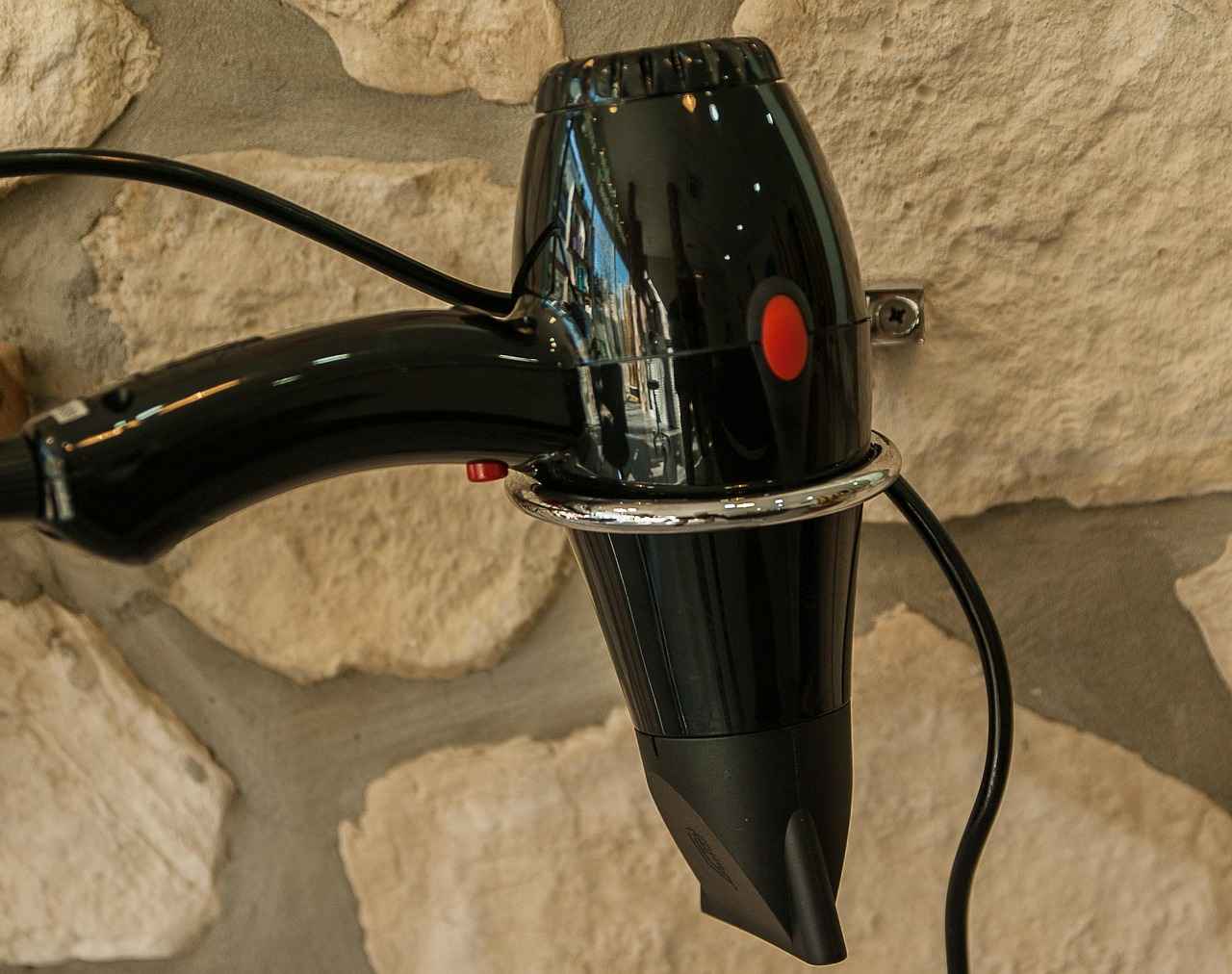This article serves as a comprehensive guide for selecting the most suitable DHI hair transplant clinic. It covers essential factors including qualifications, technology, and patient care, all aimed at ensuring optimal results for individuals seeking hair restoration.
Understanding DHI Hair Transplantation
DHI, or Direct Hair Implantation, is a cutting-edge technique for hair restoration that allows for a more natural look and quicker recovery compared to traditional methods. This innovative approach involves extracting hair follicles from a donor area and implanting them directly into the thinning or balding areas. The benefits of DHI include minimal scarring, less discomfort, and a high success rate.
Key Factors to Consider When Choosing a Clinic
- Accreditation: Ensure the clinic is accredited by relevant health authorities.
- Experience: Look for clinics with a proven track record in DHI procedures.
- Patient Reviews: Research testimonials to gauge patient satisfaction.
Qualifications of the Medical Team
The expertise of the medical team is paramount in achieving successful outcomes. When selecting a clinic, consider the following:
- Surgeon’s Experience: Choose a specialist with extensive experience in DHI techniques.
- Nursing Staff Qualifications: Ensure the support team is well-trained and knowledgeable.
Technology and Equipment Used in DHI
The technology employed in DHI procedures can greatly affect results. Look for clinics that utilize the latest advancements in hair transplant technology, which enhance precision and efficiency.
Patient Reviews and Testimonials
Feedback from previous patients provides invaluable insights into the clinic’s performance. Researching reviews and testimonials can help you make an informed decision.
Consultation Process and Patient Care
A thorough consultation is essential for understanding the DHI procedure. Expect a detailed discussion about your hair restoration goals and personalized care tailored to your needs.
Cost Considerations for DHI Hair Transplants
Understanding the costs associated with DHI hair transplants is crucial. Factors influencing pricing include the clinic’s reputation, the surgeon’s experience, and the technology used.
Conclusion: Making an Informed Decision
Choosing the best DHI hair transplant clinic requires careful consideration of multiple factors. By focusing on qualifications, technology, and patient care, you can make an informed choice for your hair restoration journey.

Understanding DHI Hair Transplantation
DHI, or Direct Hair Implantation, is an innovative and advanced technique for hair restoration that stands out in the field of cosmetic procedures. This method allows for a more precise and efficient transplantation of hair follicles, ensuring a natural look and feel. Unlike traditional hair transplant methods, DHI does not require the creation of recipient sites before implantation. Instead, it employs a specialized tool that enables the direct placement of hair follicles into the scalp, minimizing trauma and promoting quicker healing.
The benefits of DHI are numerous. First and foremost, the technique allows for greater control over the angle, depth, and direction of each hair follicle, resulting in a more aesthetically pleasing outcome. Additionally, DHI can be performed under local anesthesia, making the procedure relatively painless and comfortable for patients. Recovery time is often shorter compared to traditional methods, as the minimally invasive nature of DHI reduces scarring and post-operative discomfort.
One of the most significant differences between DHI and traditional hair transplant methods lies in the extraction and implantation processes. Traditional methods, such as Follicular Unit Transplantation (FUT), involve removing a strip of scalp to harvest hair follicles, which can lead to noticeable scarring. In contrast, DHI utilizes a punch tool to extract individual follicles directly from the donor area, preserving the surrounding tissue and enhancing the overall healing process.
Moreover, DHI is particularly suitable for individuals with varying levels of hair loss, including those with finer hair types or those looking for a more refined hairline. The precision of this method allows for greater customization, catering to the unique needs of each patient.
In conclusion, DHI represents a significant advancement in hair restoration technology, offering patients a less invasive option with superior results. Its ability to provide natural-looking hairlines and quicker recovery times makes it a preferred choice among those seeking effective hair restoration solutions.

Key Factors to Consider When Choosing a Clinic
When it comes to selecting the right clinic for your DHI hair transplant, several critical factors should guide your decision-making process. Choosing a clinic is not merely about convenience; it involves a thorough evaluation of various aspects that can significantly impact your results and overall experience.
- Accreditation: Ensure that the clinic is accredited by relevant health authorities. Accreditation guarantees that the facility meets specific standards of care and follows protocols to ensure patient safety.
- Experience: The experience of the medical team, especially the surgeon, is paramount. Look for clinics with surgeons who have extensive experience specifically in DHI procedures, as this technique requires a high level of skill and precision.
- Patient Reviews: Researching patient reviews and testimonials can provide valuable insights into the clinic’s performance. Look for feedback on the entire experience, from the initial consultation to post-procedure care. High patient satisfaction rates often indicate a reliable clinic.
- Technology: Investigate the technology and equipment used by the clinic. Advanced tools can enhance the efficiency and success of the procedure, leading to better outcomes.
- Consultation Process: A thorough consultation is essential. The clinic should offer a personalized assessment to understand your specific needs and expectations, ensuring that you are well-informed before proceeding.
- Post-Procedure Care: Inquire about the follow-up care provided after the procedure. Proper post-operative support is crucial for recovery and achieving desired results.
By considering these factors, you can make a more informed decision when selecting a DHI hair transplant clinic. Remember, investing time in research now can lead to successful and satisfying results in your hair restoration journey.

Qualifications of the Medical Team
The qualifications of the medical team performing a DHI hair transplant are crucial for ensuring a successful outcome. When selecting a clinic, it’s essential to evaluate the credentials and experience of the professionals involved in the procedure. This guide will help you understand what to look for in the qualifications of the medical team.
- Medical Degrees and Specializations: Ensure that the surgeons hold relevant medical degrees from accredited institutions. Look for specializations in dermatology or plastic surgery, as these fields are directly related to hair restoration.
- Certifications: Certifications from recognized organizations, such as the International Society of Hair Restoration Surgery (ISHRS), can indicate a surgeon’s commitment to maintaining high standards in the field.
- Experience in DHI Procedures: The surgeon’s experience specifically with DHI techniques is paramount. Inquire about the number of procedures they have performed and their success rates.
- Continuous Education: The medical field is constantly evolving, especially in hair restoration techniques. A commitment to ongoing education and training in the latest DHI methods is a good sign of a dedicated professional.
- Portfolio of Past Work: Request to see before-and-after photos of previous patients. This can give you a visual understanding of the surgeon’s skill and the potential results you can expect.
Moreover, the nursing and support staff are equally important in the overall success of the procedure. They should be well-trained in assisting during surgeries and providing patient care. Look for staff qualifications that include:
- Certification in Nursing: Registered nurses or licensed practical nurses with experience in surgical settings.
- Training in Hair Restoration: Familiarity with DHI techniques and patient care protocols.
In conclusion, the expertise of the medical team is a critical factor in the success of a DHI hair transplant. By thoroughly evaluating the qualifications, certifications, and experience of both the surgeons and support staff, you can make an informed decision when choosing the right clinic for your hair restoration needs.
Surgeon’s Experience and Specialization
When it comes to DHI (Direct Hair Implantation) hair transplants, the experience of the surgeon is a critical factor that can greatly influence the overall success of the procedure. Selecting a surgeon with a robust background in DHI techniques not only enhances the likelihood of achieving natural-looking results but also minimizes potential complications during and after the surgery.
It is essential to consider a few key aspects when evaluating a surgeon’s experience:
- Track Record: Look for a surgeon who has a proven history of successful DHI procedures. This can often be assessed through before-and-after photos, patient testimonials, and the number of procedures performed.
- Specialization: A surgeon who specializes in DHI is likely to have a deeper understanding of the technique compared to a generalist. Their focused expertise can lead to better decision-making during the procedure.
- Continuous Education: The field of hair restoration is constantly evolving. A qualified surgeon should engage in ongoing training and education to stay updated on the latest techniques and technologies in DHI.
Moreover, it is advisable to schedule a consultation before the procedure. During this consultation, you can ask the surgeon about their experience, techniques used, and expected outcomes. This interaction not only provides insight into their expertise but also helps in establishing trust and comfort, which are vital for a successful transplant.
In conclusion, choosing a surgeon with significant experience and specialization in DHI procedures is paramount. Their expertise not only affects the technical execution of the transplant but also contributes to the overall patient experience, ensuring that you achieve the best possible results.
Nursing and Support Staff Qualifications
In the realm of healthcare, particularly in specialized procedures like DHI hair transplantation, the role of qualified nursing and support staff is paramount. These professionals are not just assistants; they are integral to ensuring a smooth and effective patient experience. Their qualifications and skills directly impact patient care and the overall success of the procedure.
Essential Training and Skills
- Clinical Training: Nursing staff should possess formal education in nursing, typically holding a degree and relevant certifications. This ensures they are equipped with the necessary medical knowledge.
- Experience in Aesthetic Procedures: Familiarity with hair restoration techniques and aesthetic procedures is crucial. Staff should have hands-on experience in similar settings to provide informed assistance during the transplant.
- Patient Communication: Effective communication skills are essential. Support staff must be able to explain procedures, answer patient questions, and provide reassurance, helping to alleviate any anxiety.
- Emergency Response Training: In any medical setting, the ability to respond to emergencies is vital. Staff should be trained in basic life support and emergency protocols to ensure patient safety.
- Post-Operative Care Knowledge: Understanding the recovery process and post-operative care is critical. Staff should be able to provide guidance on aftercare and recognize signs of complications.
Continuing Education
Healthcare is an ever-evolving field. Therefore, it is essential for nursing and support staff to engage in continuing education to stay updated on the latest techniques and technologies in hair transplantation. This commitment to learning not only enhances their skills but also improves patient outcomes.
Conclusion
In conclusion, the qualifications of nursing and support staff are vital to the success of DHI hair transplant procedures. Their training, experience, and ongoing education ensure that patients receive the highest standard of care, contributing to a positive experience and optimal results.

Technology and Equipment Used in DHI
The Direct Hair Implantation (DHI) technique has revolutionized hair restoration, and the technology employed in these procedures plays a crucial role in determining the success and satisfaction of the outcomes. In this section, we delve into the latest advancements in equipment and techniques that reputable clinics should utilize to ensure optimal results for their patients.
- Robotic Assistance: The integration of robotic systems in DHI procedures enhances precision and reduces the risk of human error. These systems can accurately extract hair follicles, ensuring minimal damage to surrounding tissues.
- Choi Implanter Pen: This innovative tool allows for the direct implantation of hair follicles into the scalp with minimal trauma. The Choi pen enables surgeons to control the depth, angle, and direction of each follicle, resulting in a more natural-looking hairline.
- Advanced Imaging Technology: State-of-the-art imaging systems assist in mapping the scalp and analyzing hair density. This technology helps surgeons plan the procedure more effectively, ensuring optimal follicle placement.
- FUE Techniques: Follicular Unit Extraction (FUE) methods have evolved, with new techniques allowing for less invasive extractions and quicker recovery times. Clinics should utilize the latest FUE advancements to enhance patient comfort and results.
In addition to the tools used, the hygiene standards and facility conditions of the clinic are paramount. A clean and well-maintained environment not only ensures patient safety but also contributes to the overall success of the procedure. Top-tier clinics adhere to strict sterilization protocols and maintain high standards of cleanliness.
In conclusion, the technology and equipment used in DHI procedures significantly impact the results. By choosing a clinic that employs the latest advancements, patients can expect a higher rate of success and satisfaction in their hair restoration journey.
Importance of Advanced Tools
In the realm of DHI hair transplantation, the integration of advanced tools is crucial for enhancing both precision and efficiency during the procedure. These state-of-the-art technologies not only streamline the process but also significantly improve patient outcomes and satisfaction. Below, we delve into some of the specific technologies that are revolutionizing hair restoration.
- Robotic Assistance: Robotic systems are designed to assist surgeons with precision during the extraction and implantation of hair follicles. These robots utilize advanced algorithms to ensure that each follicle is placed at the optimal angle and depth, which is key to achieving natural-looking results.
- High-Definition Cameras: Utilizing high-definition imaging technology allows surgeons to visualize the scalp in detail. This enhanced view aids in identifying the best donor areas and ensuring meticulous placement of grafts.
- Follicular Unit Extraction (FUE) Devices: Specialized FUE devices enable the extraction of hair follicles with minimal trauma to the scalp. These tools are designed to reduce scarring and promote faster healing, which is beneficial for patient recovery.
- Smart Implanters: Smart implanters are advanced tools that automate the implantation process. They can control the depth and angle of each hair graft, resulting in a more uniform and aesthetically pleasing hairline.
These technologies not only enhance the precision of the procedure but also ensure that patients experience less discomfort and faster recovery times. Furthermore, the use of advanced tools contributes to higher rates of graft survival, ultimately leading to improved patient satisfaction.
In conclusion, the adoption of advanced tools in DHI hair transplantation represents a significant leap forward in the field of hair restoration. By investing in these technologies, clinics can offer patients enhanced results, making their hair restoration journey more successful and fulfilling.
Facility Standards and Hygiene Practices
A clean, well-equipped facility is essential for ensuring patient safety and comfort during hair transplant procedures. When selecting a DHI (Direct Hair Implantation) clinic, it is crucial to understand the hygiene standards and facility conditions that reputable clinics maintain. This section will delve into the key aspects of facility hygiene and the importance of a well-maintained environment for successful outcomes.
- Regular Cleaning Protocols: Top-tier clinics implement stringent cleaning protocols to maintain a sterile environment. This includes frequent sanitization of all surfaces, tools, and equipment used during the procedure.
- Infection Control Measures: Clinics should adhere to strict infection control measures, such as the use of disposable instruments and proper waste disposal methods, to minimize the risk of infections.
- Qualified Staff Training: The staff’s training in hygiene practices is vital. Personnel should be well-versed in sanitation protocols to ensure that every aspect of the facility meets health standards.
- Patient Comfort and Safety: A well-equipped facility not only focuses on cleanliness but also on patient comfort. This includes having comfortable waiting areas, private consultation rooms, and recovery spaces that promote a stress-free experience.
- Compliance with Health Regulations: It is essential that the clinic complies with local health regulations and standards. Accreditation from recognized health organizations can be a good indicator of the clinic’s commitment to maintaining high hygiene standards.
In conclusion, when considering a DHI hair transplant clinic, it is imperative to evaluate the facility’s hygiene practices and overall conditions. A clinic that prioritizes cleanliness and patient safety is likely to provide a more successful and satisfactory experience. By ensuring that these standards are met, patients can feel confident in the quality of care they will receive.

Patient Reviews and Testimonials
When considering a DHI hair transplant clinic, are invaluable resources that can significantly influence your decision-making process. These reflections from individuals who have undergone similar procedures provide insights into the clinic’s performance, patient satisfaction, and overall experience.
Why Are Reviews Important?
- Real Experiences: Reviews offer a glimpse into the actual experiences of former patients, highlighting both the strengths and weaknesses of a clinic.
- Quality of Care: Testimonials often reflect the level of care provided by the medical team, including the professionalism and attentiveness of both surgeons and support staff.
- Outcome Expectations: Feedback can help you set realistic expectations regarding results, recovery time, and potential complications.
How to Find Reliable Reviews
- Check multiple platforms: Look for reviews on various sites such as Google, Yelp, and specialized health forums to gather a well-rounded perspective.
- Look for patterns: Pay attention to recurring themes in reviews, whether positive or negative, as they can indicate consistent issues or strengths.
- Consider the context: Understand that individual experiences may vary based on personal circumstances, so consider the overall sentiment rather than isolated reviews.
What to Watch Out For
- Overly Positive or Negative Reviews: Be cautious of reviews that seem excessively positive or negative, as they may not provide a balanced view.
- Response from Clinics: Note how clinics respond to reviews, especially negative ones. A professional and constructive response can indicate a commitment to patient satisfaction.
In conclusion, dedicating time to research is essential for making an informed choice about your DHI hair transplant clinic. These insights can guide you toward a clinic that aligns with your expectations and needs.

Consultation Process and Patient Care
A thorough consultation is essential for understanding the DHI hair transplant procedure. This initial meeting not only sets the stage for the entire treatment journey but also allows patients to voice their concerns and expectations. During the consultation, you can expect a comprehensive evaluation of your hair loss condition, which is crucial for determining the best course of action.
The consultation typically begins with a detailed discussion about your medical history, lifestyle, and specific hair loss patterns. The medical professional will perform a physical examination of your scalp, assessing the extent of hair loss and the quality of existing hair. This step is vital as it helps in formulating a personalized treatment plan tailored to your unique needs.
Moreover, the consultation provides an opportunity for patients to ask questions regarding the DHI technique, recovery process, and anticipated outcomes. A reputable clinic will ensure that you are well-informed about what to expect before, during, and after the procedure. This transparency fosters a sense of trust and confidence in the medical team.
Personalized patient care is a cornerstone of successful hair restoration. The best clinics prioritize understanding each patient’s individual goals and concerns. This approach not only enhances the patient experience but also contributes to better overall results. The medical team should be readily available to address any post-consultation inquiries, ensuring that you feel supported throughout your journey.
In summary, a thorough consultation is not just a formality; it is a critical step in the DHI hair transplant process. By engaging in a detailed discussion and receiving personalized care, patients can make informed decisions that align with their hair restoration goals.
Pre-Procedure Assessments
are a crucial step in the DHI hair transplant process, ensuring that each patient receives a tailored approach that maximizes the likelihood of success. These assessments are designed to evaluate various factors that can influence the outcome of the hair transplant procedure.
The following evaluations should be conducted before the transplant:
- Medical History Review: A comprehensive review of the patient’s medical history is essential. This includes understanding any underlying health conditions, medications, and previous surgeries that may affect the procedure.
- Scalp Examination: A thorough examination of the scalp is performed to assess hair density, hair quality, and the extent of hair loss. This helps in determining the best donor areas for harvesting hair follicles.
- Blood Tests: Routine blood tests are conducted to check for any potential health issues, such as anemia or infections, that could complicate the surgery or recovery process.
- Consultation with the Surgeon: A detailed discussion with the surgeon allows the patient to express their expectations and concerns. The surgeon can provide insights into the feasibility of the desired results based on the assessments.
- Psychological Assessment: Understanding the patient’s mental and emotional readiness for the procedure is vital. This assessment ensures that the patient has realistic expectations and is prepared for the recovery process.
By conducting these pre-procedure assessments, clinics can develop a personalized treatment plan that caters to the unique needs of each patient. This not only enhances the chances of a successful hair transplant but also ensures that patients feel informed and confident in their decision.
In conclusion, thorough pre-procedure assessments are integral to the DHI hair transplant process. They help in identifying the most suitable approach for each patient, ultimately leading to optimal results and higher patient satisfaction.
Post-Procedure Care and Follow-Up
Post-procedure care is essential for ensuring a smooth recovery after a DHI hair transplant. This stage of the process is often overlooked, yet it plays a critical role in the overall success of the procedure. Proper follow-up care not only facilitates healing but also enhances the aesthetic results achieved through the transplant.
After the DHI procedure, patients should adhere to specific care guidelines to promote optimal healing. These guidelines typically include:
- Medication: Patients may be prescribed anti-inflammatory medications and antibiotics to prevent infection and reduce swelling. It is crucial to follow the prescribed medication regimen strictly.
- Hygiene: Keeping the scalp clean is vital. Patients should gently wash their hair using a mild shampoo as directed by their surgeon, avoiding any harsh chemicals that could irritate the scalp.
- Avoiding Physical Strain: Engaging in strenuous activities or heavy lifting should be avoided for at least a week post-procedure to prevent any disruption to the newly implanted follicles.
- Sun Protection: Direct exposure to sunlight can be harmful to the healing scalp. Patients should wear hats or use sunscreen as recommended to protect their scalp.
- Follow-Up Appointments: Regular check-ups with the medical team are essential. These appointments allow the surgeon to monitor the healing process and address any concerns that may arise.
Additionally, emotional support during recovery can significantly impact a patient’s experience. Many clinics offer counseling services or support groups to help patients navigate the emotional aspects of hair restoration. This support can be invaluable in managing expectations and enhancing overall satisfaction with the results.
In conclusion, post-procedure care is a vital component of the DHI hair transplant journey. By following the recommended guidelines and attending follow-up appointments, patients can ensure a successful recovery and achieve the best possible outcomes from their hair restoration procedure.

Cost Considerations for DHI Hair Transplants
Understanding the financial implications of DHI hair transplants is crucial for anyone considering this procedure. The costs can vary significantly based on several factors, and being informed can help you make a better decision regarding your hair restoration journey.
| Pricing Factor | Description |
|---|---|
| Geographic Location | The cost of DHI hair transplants can differ based on the clinic’s location. Urban centers may charge more due to higher operational costs. |
| Clinic Reputation | Well-established clinics with a strong reputation may charge higher fees, reflecting their expertise and success rates. |
| Surgeon’s Experience | The experience and qualifications of the surgeon performing the transplant can significantly impact the overall cost. |
| Number of Grafts | The total cost is often determined by the number of hair grafts required, which varies based on individual needs. |
| Technology Used | Advanced technology and equipment can increase costs but may lead to better results and a smoother experience. |
In addition to these factors, it’s essential to consider additional expenses such as pre-operative consultations, post-operative care, and any necessary follow-up treatments. Many clinics offer financing options or payment plans, making the procedure more accessible for patients.
Ultimately, investing in a DHI hair transplant is a personal decision that should be based on thorough research and understanding of the associated costs. By evaluating the factors outlined above, you can better prepare yourself for the financial commitment required and choose a clinic that aligns with your goals and budget.

Conclusion: Making an Informed Decision
Choosing the best DHI hair transplant clinic is a significant step in your hair restoration journey. The decision requires careful consideration of various factors to ensure you receive the best possible care and results. Below, we summarize key points to guide you in making an informed choice.
- Research and Accreditation: Verify that the clinic is accredited by relevant medical authorities. Accreditation ensures that the clinic meets specific standards of care.
- Experience of the Medical Team: Look for clinics with experienced surgeons specializing in DHI techniques. A surgeon’s expertise can greatly influence the success of the procedure.
- Technology and Equipment: Investigate the technology used in the clinic. Advanced tools and techniques can enhance precision and improve outcomes.
- Patient Reviews: Read testimonials and reviews from previous patients. This feedback can provide valuable insights into the clinic’s performance and patient satisfaction.
- Consultation Process: A thorough consultation is essential. Ensure the clinic offers personalized assessments to tailor the procedure to your specific needs.
- Post-Procedure Care: Inquire about the follow-up care provided after the transplant. Adequate post-operative support is crucial for recovery and achieving optimal results.
- Cost Transparency: Understand the pricing structure of the clinic. Look for transparent cost breakdowns to avoid unexpected financial commitments.
In conclusion, taking the time to evaluate these factors will empower you to make a well-informed decision regarding your DHI hair transplant. Remember, investing in your hair restoration is also an investment in your confidence and well-being. Choose wisely, and you will be on the path to achieving the results you desire.
Frequently Asked Questions
- What is DHI hair transplantation?
DHI, or Direct Hair Implantation, is a modern hair restoration technique that allows for the precise placement of hair follicles directly into the scalp. This method is known for its minimal invasiveness and quick recovery time, making it a popular choice for those seeking natural-looking results.
- How do I choose the right DHI clinic?
When selecting a DHI clinic, consider factors such as the clinic’s accreditation, the experience and qualifications of the medical team, patient reviews, and the technology used in procedures. It’s essential to do your homework and ensure the clinic has a solid reputation for successful outcomes.
- What should I expect during the consultation?
During your initial consultation, you can expect a thorough evaluation of your hair loss condition, a discussion of your medical history, and personalized recommendations for your hair restoration plan. This is also a great time to ask any questions you may have about the procedure and recovery process.
- What is the recovery process like after a DHI procedure?
Recovery after a DHI hair transplant is generally quick, with most patients returning to normal activities within a few days. However, it’s crucial to follow the post-procedure care instructions provided by your medical team to ensure optimal healing and results.
- Are there any risks associated with DHI hair transplantation?
Like any medical procedure, DHI hair transplantation carries some risks, including infection, scarring, or poor hair growth. However, choosing a qualified clinic with experienced professionals can significantly minimize these risks.












